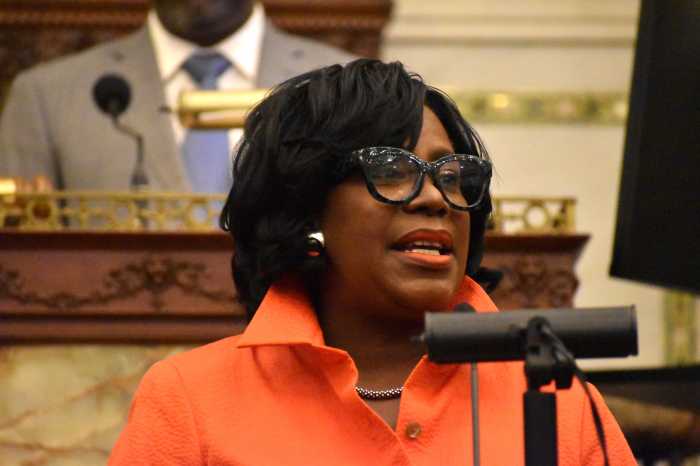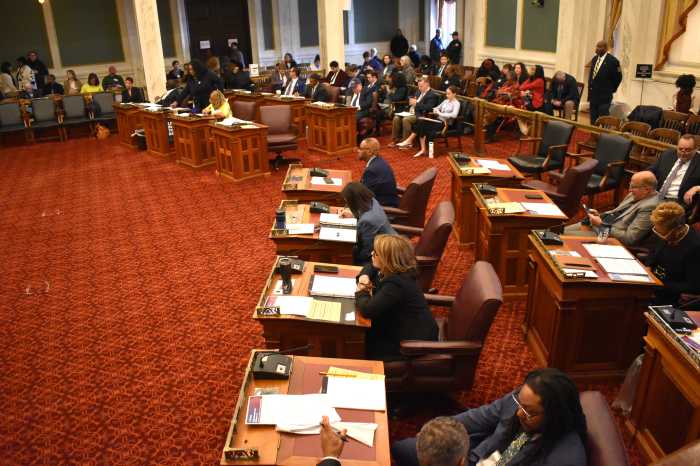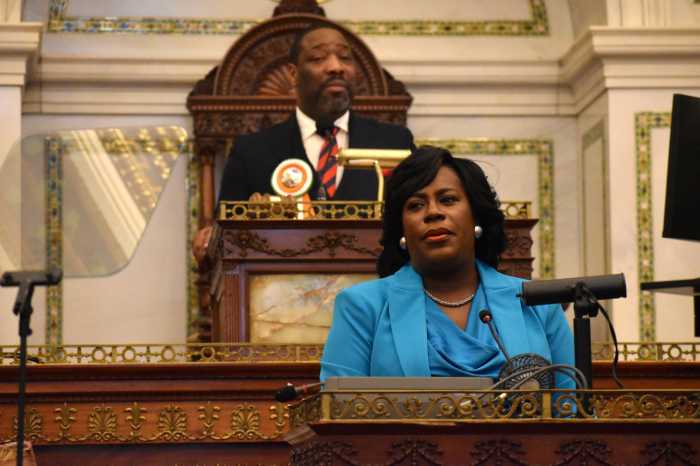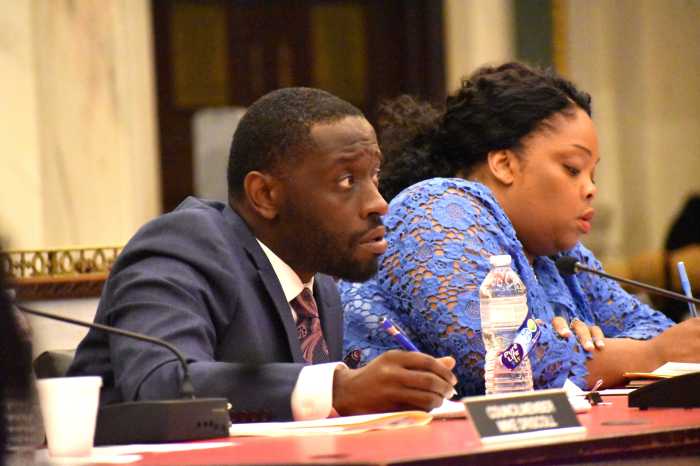Mayor Cherelle Parker laid out a $2 billion plan Monday to build and preserve 30,000 homes, describing the effort as the “largest single investment in housing in Philadelphia’s history.”
Her vision, known as the Housing Opportunities Made Easy, or H.O.M.E. Initiative, proposes the creation of new programs and the continuation and expansion of others aimed at helping renters, owners and prospective homebuyers.
The Parker administration believes its H.O.M.E. proposal could help preserve 16,500 affordable units and create another 13,500.
Parker, in an address to City Council, asked lawmakers to imagine a mix of affordable and market-rate units being constructed at two expansive city-owned properties – the former police department headquarters, referred to as the Roundhouse, and the decommissioned Holmesburg Prison.
On the ownership side, the mayor wants to launch ONE Philly Mortgage, an initiative to remove the burden of private mortgage insurance by issuing 30-year fixed rate loans with low down-payments and competitive interest rates, according to the plan. PMI is typically applied to mortgages if a prospective buyer puts less than 20% down.
For renters, Parker proposed piloting a shallow rent program for middle-income tenants and expanding targeted financial assistance for those at risk of eviction.
She said she wants to expand and increase eligibility for the Basic Systems Repair Program, a popular initiative that provides free emergency fixes. More than half of city residences were constructed before 1960, and more than a third of all homeowners and renters face critical repairs, according to data from the Mayor’s Office.
Nearly 200 homes have been sold through “Turn the Key,” an initiative launched three years ago to build single-family homes on municipally-owned vacant lots. Another 590 are in the works, Parker said.
“We will put Turn the Key on steroids,” she said.

Two focuses of her address were modifying housing programs to serve residents of middle-class neighborhoods, including city workers, and the importance of “affordable luxury,” or higher-end finishes in subsidized properties.
“If we pass this plan and we implement it in the city, you won’t know if you’re looking at an affordable house, a market-rate house,” Parker said, “because the quality of the amenities across the board, they will be aesthetically appealing and provide the dignity that all Philadelphians deserve, no matter their socioeconomic status.”
To fund the H.O.M.E. initiative, Parker is asking Council to approve borrowing $800 million, with $400 million in bonds to be issued in the next fiscal year, which begins July 1.
Parker, as part of her budget presentation earlier this month, proposed raising the real estate transfer tax to generate an estimated $173 million over five years to support the H.O.M.E. initiative. She argued, in her address Monday, that the hike would have more of an impact on commercial and industrial transactions, rather than residential sales.
Officials said an additional $1 billion in municipal assets, most notably city-owned land, would be utilized to reach the 30,000 goal.
Parker’s team said the plan invests more funding than two previous housing efforts – the $300 million Neighborhood Transformation Initiative in 2001 and the $400 million Neighborhood Transformation Initiation in 2021 – even when accounting for inflation.
“I’m excited. I still have to dig into the details. We all do,” Councilmember Jamie Gauthier, chair of the housing committee, said after the mayor’s speech. “But I think it’s notable that the mayor is making this her priority for her second year, and it’s an ambitious plan.”

An aspect of the plan that could encounter pushback within City Hall is a proposal to bypass the legislative process when selling certain publicly-owned lots.
Under a practice known as “councilmanic prerogative,” lawmakers approve land use measures proposed by Councilmembers regarding projects in their districts, and the favor is returned.
Critics argue that prerogative allows individual lawmakers to play favorites, while members themselves usually say the practice ensures that community voices are heard.
“I am not trying in any way, shape or form, to go to war with councilmanic prerogative,” said Parker, a former district councilmember.
Rather, she continued, her administration wants to develop a “new framework” where certain properties are pre-authorized for sale to a pre-approved list of developers for affordable housing without needing a bill to be introduced in Council. Parker suggested starting with of 1,000 authorized lots.
“I beg of you, City Council of Philadelphia, let’s prove people wrong who say that we can’t work together to make this process work,” she said. “Let’s take a shot at it.”
On a related note, as part of the H.O.M.E. initiative, the administration will be drafting legislation to simplify the zoning code for developers, according to Parker. District councilmembers over the years have introduced a bevy of regulations – also subject to councilmanic prerogative – applying only to their districts or a particular neighborhood.
Neighborhood organizations, such as civic associations, have input on the zoning process by law, and the groups often oppose housing projects, sometimes alongside their district Council member.
Parker’s 47-page plan notes that community opposition “can drastically delay or stop the creation of housing units needed for the city’s residents” and proposes “reforming avenues for community involvement,” though no specifics are offered.
Incentives are another part of the H.O.M.E. initiative, and Parker introduced the idea Monday of deploying expanded property tax abatements in census tracts that are not attracting development.
The mayor also proposed repealing a 1% construction impact tax in her budget, saying the levy produced little revenue and impeded builders.
Parker’s spending plan, introduced March 13, and the H.O.M.E. initiative are expected to advance through Council in tandem, with a budget hearing on housing scheduled for April 21.
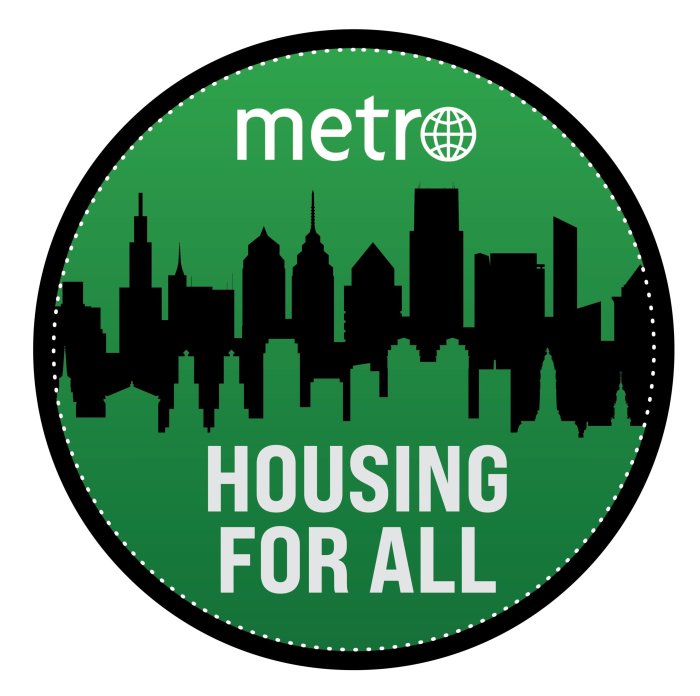
‘Housing For All’ is a two-year project in which Metro Philadelphia will investigate the city’s affordable housing crisis. It is made possible by The Lenfest Institute for Journalism’s Philadelphia Local News Sustainability Initiative grant.




